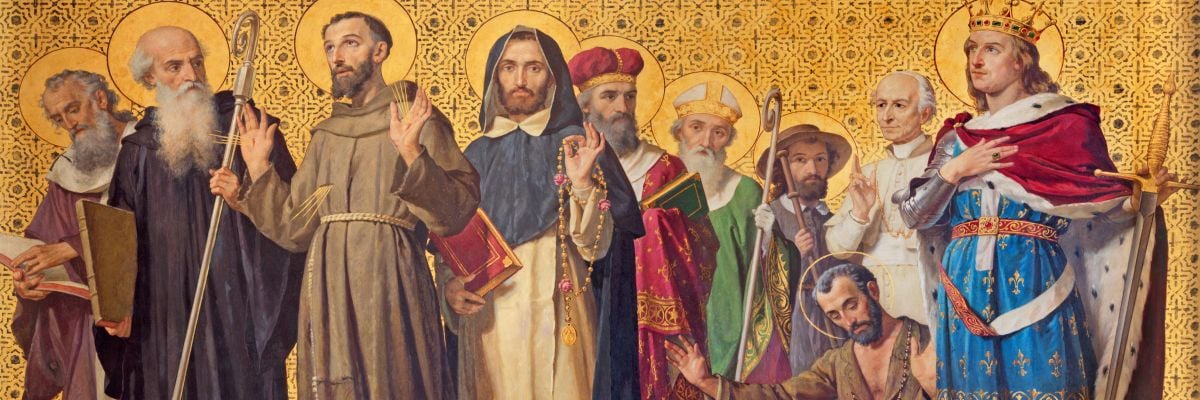
Jimmy Akin explains why we ask certain patron saints to pray for us based on our names, our hometowns, or our stations in life.
Host: Stephen calling from Scotland, you are on with Jimmy Akin.
Caller: Hi, guys, how are you guys doing this afternoon?
Host: Very well.
Jimmy: Just fine.
Caller: Great. So I tried calling in last night, but there was just so many calls, just wasn’t able to get to me. So my question is, I had a couple Protestant friends come to me and ask me about patron saints, and how patron saints might be more significant than, let’s say, another saint’s intercession on my behalf. Now, my name being Stephen, I was taking on St. Stephen as my patron saint; how is he more significant than, let’s just say, St. Paul or Saint Patrick or someone else? I wasn’t sure exactly how to…
Jimmy: The idea of having a patron saint pray for you or a community or whatever, depending on what the saint is patron of, it isn’t that we know this saint is higher up in Heaven or anything like that. We don’t know what the heavenly hierarchy of saints is, we leave that to God. But it can be presumed that someone who has a similarity to you, in one way or another, would be willing to pray for you and interested in praying for you. If you have a special connection with someone, then it can be assumed that that person would have a special interest in praying for you.
Like, I mean–to give an example: your own parents. Let’s suppose your parents have passed away and gone to be with God in Heaven; well, you’re their child, and so, presumably, they would have a special interest in praying for you. Now any saint–I mean, all the saints are perfected in charity in Heaven, so, you know, they’re all willing to pray for us–but, you know, those who have a special connection to us, it makes sense to ask them to pray for us.
And so if your name is Stephen, then it makes sense to ask Saint Stephen to pray for you. That’s a connection you have with him. If you are–I know you’re from Scotland, but for people who are from Ireland, St. Patrick was the evangelist who evangelized Ireland, he was the main initial evangelist, and so he had a special care for Irish people in this life; you’d expect him to have a special interest in praying for them the next life. Similarly, Saint Ambrose, from Milan, Italy, well, he was the Bishop of Milan, and so if you’re a Milanese Catholic today, it would be natural, just like he had special care for the Milanese of his day, to ask him to pray for you and the other people of Milan today.
So it’s really just based on connections and similarities and experiences that various saints had in their life. For example, Saints Peter and Paul, they were both martyrs. So if you were, God forbid, in a situation today where you were about to be martyred, it would be natural to pray to Saints Peter and Paul and other martyrs, because they had undergone the same experience that you’re now faced with, and they would presumably have a special interest in praying for you–although as we said, since the Saints are all perfected in love, they’re all willing to pray for whoever wants them to–but it still makes sense on a human level that there may be some special connections.
Caller: Aye, alright. Thanks so much, I really appreciate it. I was not quite sure how to really best word that situation, because I had heard a couple different people talk about it, just wasn’t sure.
Jimmy: Well, that’s how I’d present it.



